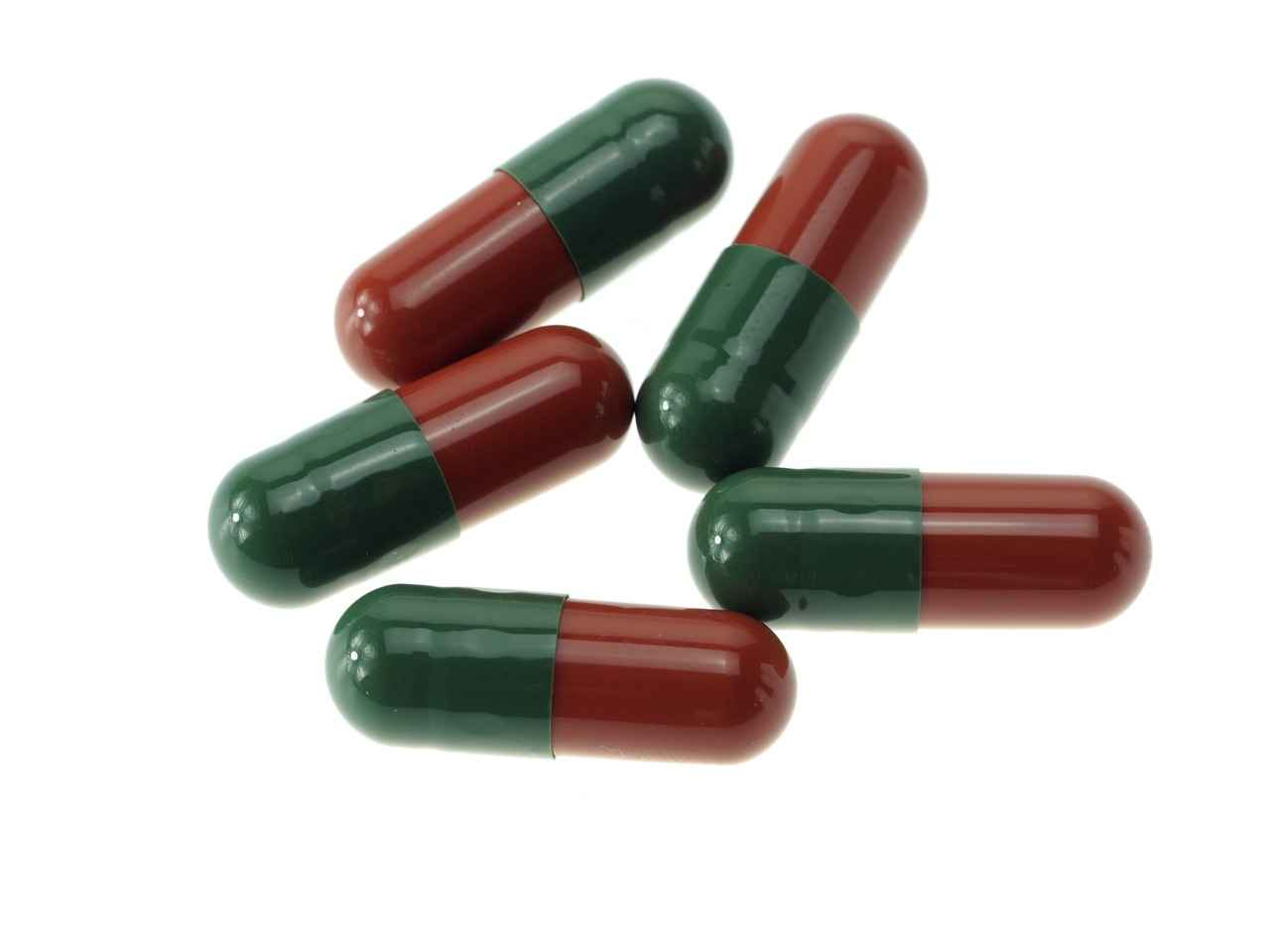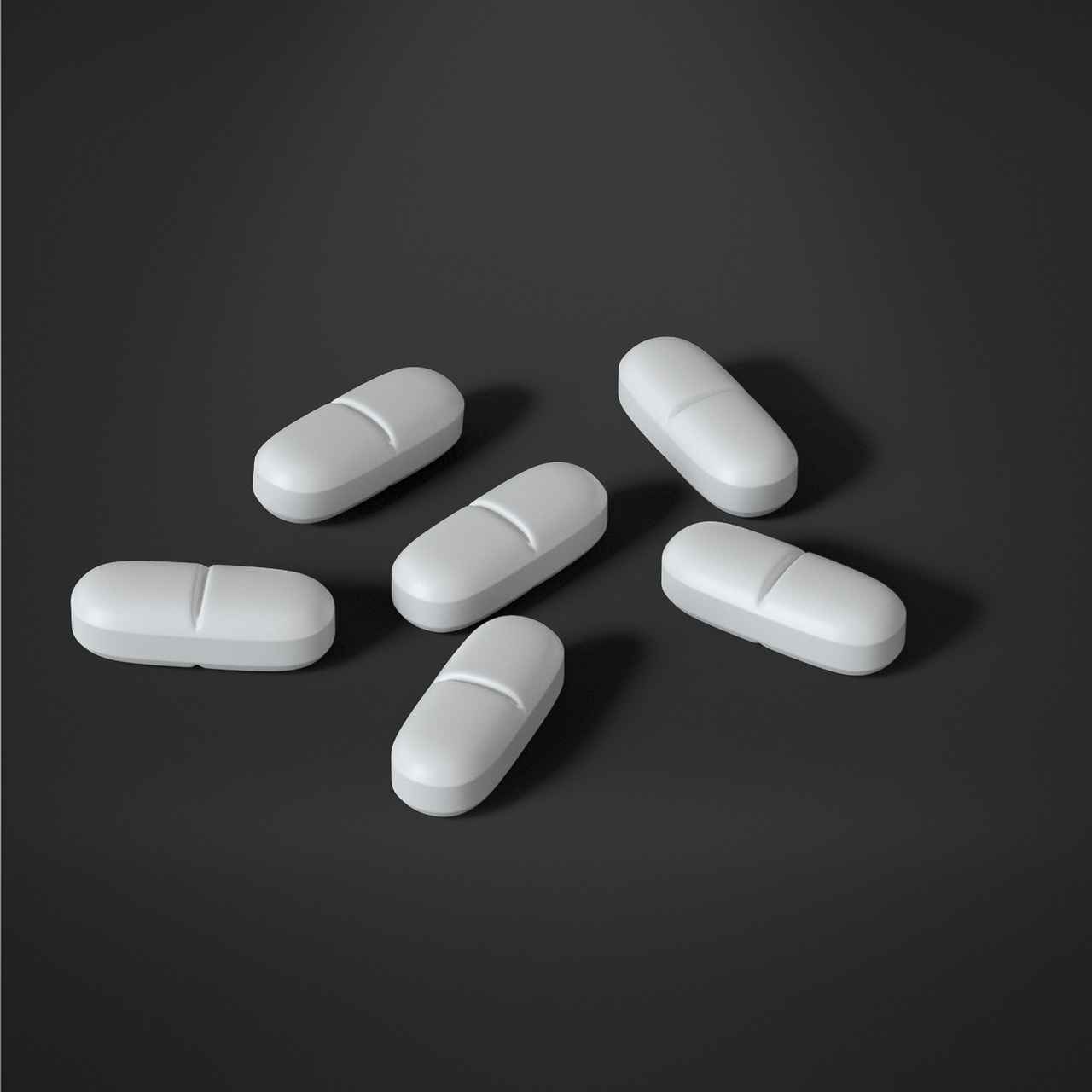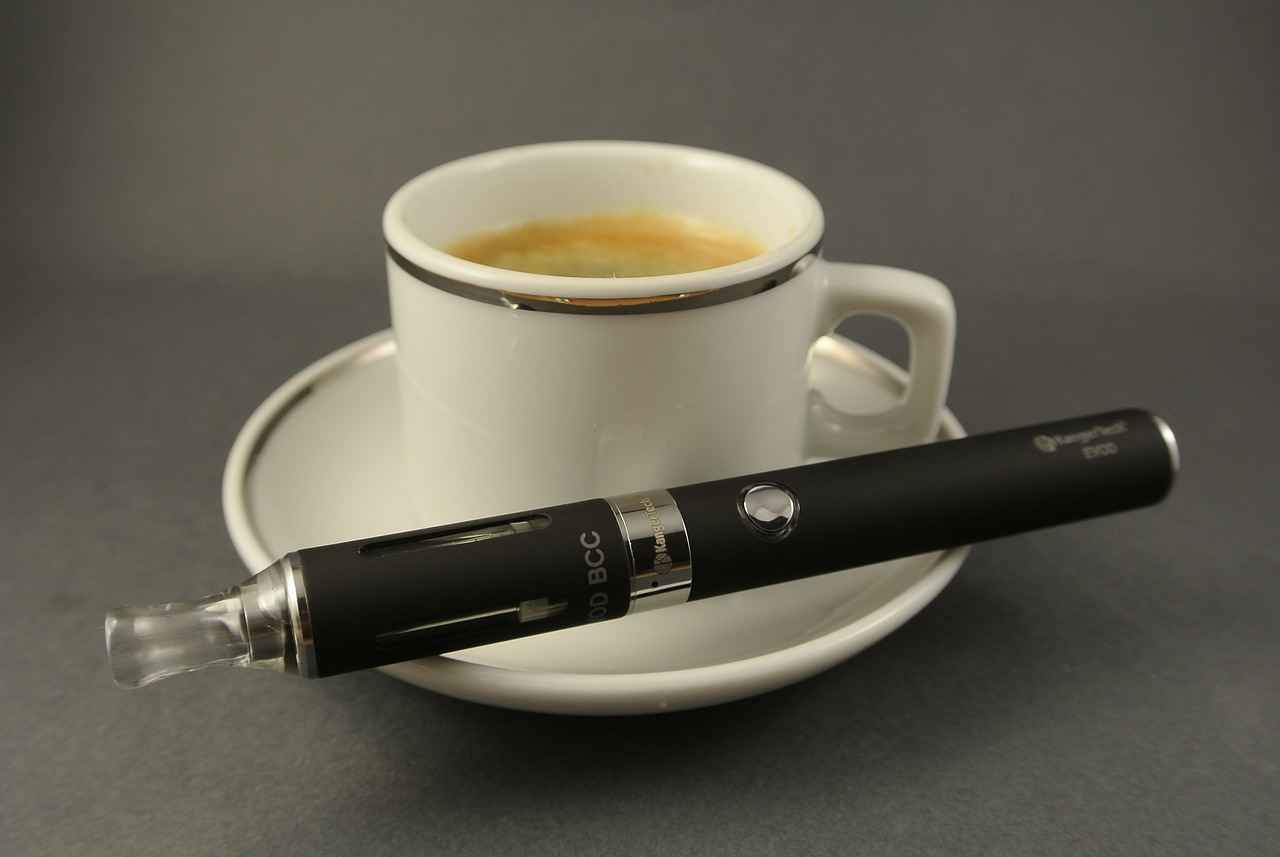This article delves into the benefits of SAM-e supplements for enhancing mood, providing scientific insights, usage recommendations, and potential side effects. Discover how this supplement can significantly improve mental well-being.
What is SAM-e?
SAM-e, or S-adenosylmethionine, is a naturally occurring compound in the body that plays a critical role in various biochemical processes. It is synthesized from the amino acid methionine and is involved in the methylation process, which is essential for the production of neurotransmitters.
How Does SAM-e Work?
SAM-e contributes to the production of neurotransmitters such as serotonin and dopamine, which are vital for regulating mood and emotional stability. By facilitating the synthesis of these neurotransmitters, SAM-e may help alleviate symptoms of mood disorders.
The Role of Neurotransmitters
- Serotonin: Often referred to as the “feel-good” neurotransmitter, serotonin plays a crucial role in mood regulation. SAM-e supplementation can enhance serotonin levels, potentially alleviating feelings of depression.
- Dopamine: This neurotransmitter is associated with motivation and pleasure. Increased dopamine levels from SAM-e may lead to improved mood and energy levels.
Scientific Evidence Supporting SAM-e
Numerous studies have explored the efficacy of SAM-e in treating mood disorders. Research has indicated that SAM-e can be as effective as traditional antidepressants for some individuals, making it a valuable option for those seeking alternative treatments.
Recommended Dosage of SAM-e
Determining the appropriate dosage is crucial for maximizing benefits while minimizing side effects. Initial dosages typically range from 400 mg to 800 mg per day, with adjustments made based on individual response.
Potential Side Effects of SAM-e
While SAM-e is generally safe, some individuals may experience side effects such as gastrointestinal discomfort, insomnia, or anxiety. It’s essential to consult a healthcare professional if any adverse symptoms occur.
Who Should Consider SAM-e Supplements?
- Individuals with Depression: SAM-e may serve as an adjunctive treatment for those experiencing depressive symptoms.
- People with Anxiety Disorders: SAM-e might help individuals dealing with anxiety, improving overall emotional stability.
Integrating SAM-e into Your Routine
To maximize the benefits, consider taking SAM-e on an empty stomach and at the same time each day. This consistency can help maintain stable levels in the body.
Conclusion: The Future of SAM-e in Mood Enhancement
As research progresses, the role of SAM-e in mood enhancement may expand further. This supplement presents a promising alternative for individuals seeking to improve their mental well-being. Continued exploration of its benefits and mechanisms will be essential for integrating SAM-e into standard treatment protocols.

What is SAM-e?
SAM-e, or S-adenosylmethionine, is a naturally occurring compound in the human body that plays a pivotal role in numerous biochemical processes. It is synthesized from the amino acid methionine and is involved in the methylation of DNA, proteins, and lipids. This process is crucial for maintaining cellular function and regulating gene expression.
Understanding the significance of SAM-e is essential, particularly in relation to its mood-enhancing properties. Research has shown that SAM-e can influence the levels of important neurotransmitters such as serotonin and dopamine, which are vital for emotional well-being. These neurotransmitters are responsible for transmitting signals in the brain that affect mood, motivation, and overall mental health.
Moreover, SAM-e is not only important for mood regulation but also plays a role in liver function and joint health. Its multifaceted benefits make it a compound of interest for both researchers and individuals seeking natural ways to improve their mental state.
In recent years, SAM-e has gained popularity as a dietary supplement, particularly among those looking to manage symptoms of depression and anxiety. Its potential to enhance mood and alleviate feelings of sadness has made it a subject of various scientific studies. The findings suggest that SAM-e supplementation may provide a safe and effective alternative or complement to traditional antidepressant medications.
In summary, SAM-e is a vital compound with significant implications for mood enhancement and overall mental health. By understanding its functions and potential benefits, individuals can make informed decisions regarding its use in their wellness routines.

How Does SAM-e Work?
SAM-e, or S-adenosylmethionine, is a compound that plays a pivotal role in numerous biochemical processes within the body, particularly in the synthesis of neurotransmitters. This section explores the intricate mechanisms by which SAM-e contributes to the production of essential neurotransmitters, namely serotonin and dopamine, both of which are crucial for maintaining a balanced mood.
Neurotransmitters are chemical messengers that facilitate communication between neurons in the brain. They significantly influence our emotional states and overall mental health. SAM-e enhances the levels of these neurotransmitters, thereby potentially alleviating symptoms of mood disorders.
| Neurotransmitter | Role in Mood | SAM-e’s Effect |
|---|---|---|
| Serotonin | Regulates mood, anxiety, and happiness | Increases serotonin production, which may alleviate depression |
| Dopamine | Influences motivation, pleasure, and reward | Boosts dopamine levels, enhancing motivation and energy |
Research indicates that when SAM-e is supplemented, it can lead to an increase in the availability of methyl groups necessary for the synthesis of these neurotransmitters. This process occurs through a series of biochemical reactions, including the methylation of precursors that are involved in the production of serotonin and dopamine.
Moreover, the balance of these neurotransmitters is critical. A deficiency in serotonin is often linked to depression, while low dopamine levels can result in a lack of motivation and pleasure. By enhancing the production of both, SAM-e may provide a dual benefit, potentially leading to improved mood and emotional stability.
In conclusion, understanding how SAM-e works at a biochemical level reveals its potential as a powerful supplement for mood enhancement. Through its role in neurotransmitter production, SAM-e not only supports mental health but also contributes to a more balanced emotional state.
The Role of Neurotransmitters
Neurotransmitters play a pivotal role in our brain’s communication system, acting as chemical messengers that transmit signals between neurons. These essential compounds significantly influence our mood, emotional regulation, and overall mental health. Understanding how these neurotransmitters function can provide insights into various psychological conditions and the potential benefits of supplements like SAM-e.
SAM-e, or S-adenosylmethionine, has garnered attention for its ability to enhance the production of key neurotransmitters, particularly serotonin and dopamine. This section delves deeper into the mechanisms through which SAM-e impacts these vital brain chemicals.
| Neurotransmitter | Function | Effect of SAM-e |
|---|---|---|
| Serotonin | Regulates mood, anxiety, and happiness | Potentially increases levels, promoting a positive mood |
| Dopamine | Influences motivation, pleasure, and reward | May enhance production, improving energy and enthusiasm |
When serotonin levels are balanced, individuals often experience a sense of well-being and emotional stability. Conversely, low serotonin levels are frequently associated with conditions such as depression and anxiety. SAM-e supplementation may assist in restoring these levels, offering a natural approach to mood enhancement.
Similarly, dopamine’s role in motivation and pleasure cannot be overstated. It is often referred to as the feel-good neurotransmitter, and its deficiency can lead to feelings of apathy and lack of drive. By potentially boosting dopamine levels, SAM-e may help individuals regain their motivation and zest for life.
In summary, the influence of SAM-e on neurotransmitters like serotonin and dopamine highlights its potential as a valuable supplement for those seeking to improve their mood and emotional health. Further research continues to explore its efficacy, but the existing evidence suggests that SAM-e could be a promising ally in the pursuit of mental well-being.
Serotonin and Mood Regulation
Serotonin is often referred to as the ‘feel-good’ neurotransmitter due to its significant role in regulating mood and emotional well-being. It is a chemical messenger that helps transmit signals in the brain, influencing various functions such as mood, appetite, and sleep. Understanding the importance of serotonin is crucial for anyone looking to enhance their mental health.
Research indicates that low levels of serotonin are linked to mood disorders, particularly depression and anxiety. This has led to a growing interest in ways to boost serotonin levels naturally or through supplementation. One such supplement that has gained attention is SAM-e (S-adenosylmethionine), which is known to support serotonin production in the brain.
When SAM-e is taken as a supplement, it may enhance the synthesis of serotonin, leading to improved mood and emotional stability. This is particularly beneficial for individuals suffering from mood disorders, as increasing serotonin levels can help alleviate symptoms of depression and anxiety.
Furthermore, studies have shown that SAM-e supplementation can lead to a noticeable improvement in mood over time. For those considering SAM-e as a treatment option, it is essential to consult with a healthcare professional to determine the appropriate dosage and ensure it aligns with individual health needs.
In conclusion, serotonin plays a vital role in mood regulation, and enhancing its levels through SAM-e supplementation may offer significant benefits for individuals struggling with mood disorders. As research continues to evolve, the potential of serotonin-boosting supplements like SAM-e in mental health treatment remains promising.
- Key Benefits of SAM-e:
- Enhances serotonin production
- Improves mood and emotional stability
- May alleviate symptoms of depression and anxiety
- Considerations:
- Consult a healthcare provider before starting supplementation
- Monitor for any side effects
feel-good
The Mood-Enhancing Effects of SAM-e Supplements
This article explores the benefits of SAM-e supplements for mood enhancement, including scientific insights, usage recommendations, and potential side effects. Discover how this supplement can improve mental well-being.
What is SAM-e?
SAM-e, or S-adenosylmethionine, is a naturally occurring compound in the body involved in various biochemical processes. Understanding its role is crucial for appreciating its mood-enhancing properties.
How Does SAM-e Work?
SAM-e contributes to the production of neurotransmitters like serotonin and dopamine, which play vital roles in regulating mood. This section delves into the biochemical mechanisms involved.
The Role of Neurotransmitters
Neurotransmitters are chemical messengers that influence mood and emotional regulation. This section examines how SAM-e affects these crucial brain chemicals.
Serotonin and Mood Regulation
Serotonin is often dubbed the neurotransmitter. This part discusses how SAM-e supplementation can boost serotonin levels, potentially alleviating depression.
Dopamine and Motivation
Dopamine is linked to motivation and pleasure. This section explores how SAM-e may enhance dopamine production, improving overall mood and energy levels.
Scientific Evidence Supporting SAM-e
Numerous studies have investigated the efficacy of SAM-e in treating mood disorders. This section reviews key research findings that support its use.
Recommended Dosage of SAM-e
Determining the appropriate dosage of SAM-e is essential for maximizing its benefits while minimizing side effects. This section provides guidelines based on current research.
Starting Dosage Recommendations
For individuals new to SAM-e, starting with a lower dosage can help gauge tolerance. This part outlines suggested initial dosages.
Adjusting Dosage for Effectiveness
As individuals respond differently, adjusting the dosage may be necessary. This section discusses how to find the right balance for optimal mood enhancement.
Potential Side Effects of SAM-e
While SAM-e is generally considered safe, it can cause side effects in some individuals. This section details common side effects and when to consult a healthcare professional.
Common Side Effects
- Gastrointestinal issues
- Insomnia
- Headaches
When to Seek Medical Advice
Certain symptoms may indicate the need for medical consultation. This section highlights warning signs and conditions that warrant professional guidance.
Who Should Consider SAM-e Supplements?
SAM-e may benefit various individuals, particularly those struggling with mood disorders. This section identifies who might find SAM-e supplementation helpful.
Individuals with Depression
Depression can significantly impact quality of life. This part discusses how SAM-e may serve as an adjunctive treatment for those experiencing depressive symptoms.
People with Anxiety Disorders
Anxiety can be debilitating. This section explores how SAM-e might help individuals dealing with anxiety, improving overall emotional stability.
Integrating SAM-e into Your Routine
Incorporating SAM-e into a daily regimen can enhance its benefits. This section provides practical tips for effective integration into one’s lifestyle.
Timing and Administration
When and how to take SAM-e can influence its effectiveness. This part offers advice on the best practices for administration.
Combining SAM-e with Other Treatments
SAM-e may complement other treatments for mood disorders. This section discusses how to effectively combine SAM-e with medications or therapies.
Conclusion: The Future of SAM-e in Mood Enhancement
As research continues, the role of SAM-e in mood enhancement may expand. This conclusion summarizes the key points and encourages further exploration of this promising supplement.
neurotransmitter. This part discusses how SAM-e supplementation can boost serotonin levels, potentially alleviating depression.
The Mood-Enhancing Effects of SAM-e Supplements
This article explores the benefits of SAM-e supplements for mood enhancement, including scientific insights, usage recommendations, and potential side effects. Discover how this supplement can improve mental well-being.
What is SAM-e?
SAM-e, or S-adenosylmethionine, is a naturally occurring compound in the body involved in various biochemical processes. Understanding its role is crucial for appreciating its mood-enhancing properties.
How Does SAM-e Work?
SAM-e contributes to the production of neurotransmitters like serotonin and dopamine, which play vital roles in regulating mood. This section delves into the biochemical mechanisms involved.
The Role of Neurotransmitters
Neurotransmitters are chemical messengers that influence mood and emotional regulation. This subheading examines how SAM-e affects these crucial brain chemicals.
Serotonin and Mood Regulation
Serotonin is often dubbed the feel-good neurotransmitter. This part discusses how SAM-e supplementation can boost serotonin levels, potentially alleviating depression.
Dopamine and Motivation
Dopamine is linked to motivation and pleasure. This section explores how SAM-e may enhance dopamine production, improving overall mood and energy levels.
Scientific Evidence Supporting SAM-e
Numerous studies have investigated the efficacy of SAM-e in treating mood disorders. This section reviews key research findings that support its use.
Recommended Dosage of SAM-e
Determining the appropriate dosage of SAM-e is essential for maximizing its benefits while minimizing side effects. This section provides guidelines based on current research.
Starting Dosage Recommendations
For individuals new to SAM-e, starting with a lower dosage can help gauge tolerance. This part outlines suggested initial dosages.
Adjusting Dosage for Effectiveness
As individuals respond differently, adjusting the dosage may be necessary. This section discusses how to find the right balance for optimal mood enhancement.
Potential Side Effects of SAM-e
While SAM-e is generally considered safe, it can cause side effects in some individuals. This section details common side effects and when to consult a healthcare professional.
Common Side Effects
Understanding potential side effects is crucial for safe use. This part lists common adverse effects associated with SAM-e supplementation.
When to Seek Medical Advice
Certain symptoms may indicate the need for medical consultation. This section highlights warning signs and conditions that warrant professional guidance.
Who Should Consider SAM-e Supplements?
SAM-e may benefit various individuals, particularly those struggling with mood disorders. This section identifies who might find SAM-e supplementation helpful.
Individuals with Depression
Depression can significantly impact quality of life. This part discusses how SAM-e may serve as an adjunctive treatment for those experiencing depressive symptoms.
People with Anxiety Disorders
Anxiety can be debilitating. This section explores how SAM-e might help individuals dealing with anxiety, improving overall emotional stability.
Integrating SAM-e into Your Routine
Incorporating SAM-e into a daily regimen can enhance its benefits. This section provides practical tips for effective integration into one’s lifestyle.
Timing and Administration
When and how to take SAM-e can influence its effectiveness. This part offers advice on the best practices for administration.
Combining SAM-e with Other Treatments
SAM-e may complement other treatments for mood disorders. This section discusses how to effectively combine SAM-e with medications or therapies.
Conclusion: The Future of SAM-e in Mood Enhancement
As research continues, the role of SAM-e in mood enhancement may expand. This conclusion summarizes the key points and encourages further exploration of this promising supplement.
Dopamine and Motivation
Dopamine plays a crucial role in regulating our motivation and the feelings of pleasure we experience in our daily lives. It is one of the key neurotransmitters that contribute to our overall sense of well-being. This section delves into how SAM-e (S-adenosylmethionine) may enhance dopamine production, thus potentially improving our mood and energy levels.
SAM-e is a naturally occurring compound in the body that has been linked to the synthesis of various neurotransmitters, including dopamine. By increasing the availability of SAM-e, we may stimulate the production of dopamine, which can lead to enhanced feelings of motivation and pleasure. This is particularly significant for individuals who may struggle with mood disorders or experience low energy levels.
Research indicates that low levels of dopamine are often associated with conditions such as depression and anxiety. Therefore, by supplementing with SAM-e, individuals may find relief from these symptoms as their dopamine levels increase. This can result in a more positive outlook on life, greater motivation to engage in daily activities, and an overall boost in energy.
Moreover, the effects of SAM-e on dopamine production can lead to improved cognitive function. Enhanced dopamine levels are associated with better focus and concentration, making it easier for individuals to accomplish tasks that may have previously felt overwhelming.
In conclusion, the relationship between SAM-e and dopamine production highlights the potential of this supplement in enhancing motivation and pleasure. By supporting dopamine synthesis, SAM-e may serve as a valuable tool for improving mood and overall mental health.
Scientific Evidence Supporting SAM-e
Numerous scientific studies have explored the efficacy of S-adenosylmethionine (SAM-e) in treating various mood disorders, including depression and anxiety. Research indicates that SAM-e may play a significant role in enhancing mood and emotional well-being. This section highlights key findings from prominent studies that support the use of SAM-e as a viable treatment option.
- Clinical Trials: Several clinical trials have demonstrated that SAM-e can be as effective as traditional antidepressants in alleviating symptoms of depression. For instance, a study published in the American Journal of Psychiatry found that participants who received SAM-e showed significant improvement in their depressive symptoms compared to those who received a placebo.
- Mechanism of Action: Research suggests that SAM-e enhances the production of neurotransmitters, particularly serotonin and dopamine, which are crucial for regulating mood. A study in the Journal of Neurochemistry indicated that SAM-e supplementation increases the levels of these neurotransmitters, potentially leading to improved mood and emotional stability.
- Long-term Benefits: Longitudinal studies have explored the long-term effects of SAM-e supplementation. One such study revealed that individuals who maintained SAM-e treatment over an extended period experienced sustained improvements in mood and a reduction in depressive episodes.
- Comparative Studies: Comparative research has shown that SAM-e can be beneficial for individuals who do not respond well to conventional antidepressants. A meta-analysis published in Psychological Medicine concluded that SAM-e is a promising alternative for treatment-resistant depression.
In summary, the growing body of evidence supporting SAM-e’s effectiveness in treating mood disorders highlights its potential as a valuable adjunctive therapy. As ongoing research continues to validate these findings, SAM-e may become an increasingly recognized option for individuals seeking to enhance their mental well-being.
Recommended Dosage of SAM-e
Determining the appropriate dosage of SAM-e is essential for maximizing its benefits while minimizing potential side effects. This section provides comprehensive guidelines based on current research and expert recommendations to help users make informed decisions.
| Dosage Level | Recommended Dosage (mg) | Purpose |
|---|---|---|
| Starting Dosage | 200-400 mg | To assess tolerance and initial effects |
| Standard Dosage | 400-800 mg | For mood enhancement and general well-being |
| Higher Dosage | 800-1600 mg | For individuals with more severe symptoms |
For individuals new to SAM-e, it is advisable to start with a lower dosage, typically between 200-400 mg, to gauge individual tolerance. This cautious approach allows the body to adjust to the supplement while minimizing the risk of adverse effects.
As individuals begin to notice the effects of SAM-e, they may consider gradually increasing the dosage. Research suggests that a standard dosage of 400-800 mg is effective for most individuals seeking to enhance their mood and overall mental well-being.
However, some individuals may require higher dosages, ranging from 800-1600 mg, particularly those dealing with more severe mood disorders. It is crucial to consult with a healthcare professional before making any adjustments to ensure safety and efficacy.
In conclusion, the key to maximizing the benefits of SAM-e lies in finding the right dosage tailored to individual needs. Regular monitoring and consultation with a healthcare provider can help achieve optimal results.
Starting Dosage Recommendations
For individuals who are new to SAM-e (S-adenosylmethionine), it is advisable to begin with a lower dosage. This cautious approach helps in assessing personal tolerance and minimizes the risk of potential side effects. Understanding the right starting dosage is crucial for maximizing the benefits of this supplement while ensuring safety.
Generally, a daily dosage of 200 mg to 400 mg is recommended for beginners. This initial range allows the body to adjust to the supplement gradually. It is essential to monitor how your body responds during this period. If you experience any adverse effects, it is advisable to consult a healthcare professional.
| Dosage Level | Recommended Daily Amount | Notes |
|---|---|---|
| Low Dose | 200 mg | Ideal for first-time users to assess tolerance. |
| Moderate Dose | 400 mg | Can be considered after a week if no side effects occur. |
| High Dose | 800 mg | Only for those who have built tolerance and need more significant effects. |
It is important to note that individual responses to SAM-e can vary significantly. Some people may find that they feel the effects at the lower end of the dosage spectrum, while others may require a higher dose for optimal results. Therefore, it is advisable to increase the dosage gradually, allowing a week or two between adjustments. This method ensures that you can accurately gauge how SAM-e impacts your mood and overall well-being.
In conclusion, starting with a lower dosage of SAM-e is a prudent strategy for newcomers. By adhering to these recommendations and listening to your body, you can effectively find the right balance for mood enhancement while minimizing potential side effects.

Adjusting Dosage for Effectiveness
Finding the right dosage of SAM-e is crucial for maximizing its mood-enhancing effects. As individuals respond differently to supplements, it is essential to tailor the dosage to meet personal needs and health conditions. This section outlines practical steps to help you achieve optimal results.
- Start Low and Go Slow: For those new to SAM-e, beginning with a lower dosage is advisable. This approach allows your body to adjust and helps you monitor any potential side effects.
- Monitor Your Response: Keep track of your mood and any changes you experience after starting SAM-e. This can include noting improvements in emotional well-being or any adverse reactions.
- Consult with a Healthcare Professional: Before making any adjustments, it’s wise to discuss your experience with a healthcare provider. They can offer personalized advice based on your health history.
- Gradual Adjustments: If you feel the initial dosage is not effective, consider gradually increasing it. A common recommendation is to raise the dosage by 100-200 mg increments every week until you find the right balance.
- Be Patient: It is important to remember that the effects of SAM-e may not be immediate. Allow a few weeks to assess its full impact on your mood before making significant changes.
In conclusion, adjusting the dosage of SAM-e is a personalized process that requires careful consideration and monitoring. By starting with a low dose, tracking your response, and consulting with a healthcare professional, you can find the optimal dosage that enhances your mood effectively and safely.
Potential Side Effects of SAM-e
While S-adenosylmethionine (SAM-e) is widely recognized for its potential benefits in enhancing mood and alleviating symptoms of depression, it is important to be aware of its potential side effects. Understanding these effects can empower users to make informed decisions regarding their health.
Common Side Effects
- Gastrointestinal Issues: Some individuals may experience discomfort such as nausea, diarrhea, or constipation.
- Insomnia: SAM-e can lead to difficulties in sleeping, particularly if taken later in the day.
- Headaches: A small percentage of users report experiencing headaches after starting SAM-e supplementation.
- Anxiety or Restlessness: In some cases, SAM-e may increase feelings of anxiety or restlessness.
When to Seek Medical Advice
While many users tolerate SAM-e well, certain symptoms may indicate a need for professional consultation. If you experience any of the following, it is advisable to seek medical advice:
- Severe gastrointestinal distress that does not improve.
- Persistent headaches that disrupt daily activities.
- Increased feelings of anxiety or panic attacks.
- Any unusual or severe side effects that concern you.
Additionally, individuals with pre-existing conditions, such as bipolar disorder, should consult a healthcare professional before starting SAM-e, as it may exacerbate certain symptoms. Pregnant or nursing women should also seek medical guidance prior to using this supplement.
In conclusion, while SAM-e can be a beneficial supplement for mood enhancement, it is crucial to be aware of its potential side effects. Monitoring your body’s response and consulting with a healthcare provider can help ensure safe and effective use.
Common Side Effects
Understanding the potential side effects of SAM-e supplementation is essential for ensuring a safe and effective experience. While many individuals tolerate SAM-e well, some may experience adverse effects. Below is a detailed overview of the common side effects associated with SAM-e:
- Gastrointestinal Issues: Some users report nausea, diarrhea, or constipation. These symptoms often occur when starting supplementation and may subside as the body adjusts.
- Insomnia: SAM-e can be stimulating for some individuals, leading to difficulties in falling asleep or maintaining sleep. It is advisable to take SAM-e earlier in the day to mitigate this effect.
- Headaches: A common complaint among users is the occurrence of headaches, which may be due to changes in neurotransmitter levels.
- Increased Anxiety: While SAM-e can help alleviate symptoms of depression, it may cause heightened feelings of anxiety in some individuals, particularly at higher doses.
- Allergic Reactions: Although rare, some individuals may experience allergic reactions such as rash or itching. If these symptoms occur, it is crucial to discontinue use and consult a healthcare professional.
It is important to note that these side effects are generally mild and often resolve over time. However, if you experience severe or persistent symptoms, it is advisable to seek medical advice. A healthcare provider can help determine whether SAM-e is appropriate for you and make recommendations for dosage adjustments or alternative treatments.
In conclusion, being aware of the potential side effects of SAM-e can empower users to make informed decisions about their supplementation. Always consult with a healthcare professional before starting any new supplement regimen.

When to Seek Medical Advice
Recognizing when to consult a medical professional is crucial for maintaining health and well-being. Certain symptoms can serve as warning signs that indicate the necessity for professional guidance. This section outlines these symptoms and conditions to help you make informed decisions regarding your health.
- Persistent Mood Changes: If you experience ongoing feelings of sadness, anxiety, or irritability that last for more than two weeks, it is essential to seek medical advice. These could be signs of underlying mood disorders that require intervention.
- Suicidal Thoughts: Any thoughts of self-harm or suicide should be taken seriously. Immediate consultation with a healthcare provider or mental health professional is critical in such situations.
- Severe Physical Symptoms: Physical symptoms such as unexplained pain, fatigue, or changes in appetite can be linked to mental health issues. If these symptoms persist, a medical evaluation is necessary.
- Substance Abuse: If you find yourself relying on drugs or alcohol to cope with stress or emotional pain, it is vital to seek help. Professional guidance can provide the support needed to address these issues effectively.
- Impact on Daily Life: When mood changes or mental health issues interfere with daily activities, relationships, or work, seeking medical advice is warranted. Early intervention can lead to better outcomes.
In summary, being aware of these warning signs can empower you to take proactive steps toward better health. If you or someone you know is experiencing these symptoms, do not hesitate to reach out to a healthcare professional for support and guidance. Remember, seeking help is a sign of strength.
Who Should Consider SAM-e Supplements?
SAM-e, or S-adenosylmethionine, is gaining attention for its potential benefits in enhancing mood and alleviating symptoms associated with various mood disorders. Understanding who may benefit from SAM-e supplementation is crucial for those seeking alternative or complementary treatments.
- Individuals with Depression: People experiencing depression may find SAM-e particularly beneficial. Research indicates that SAM-e can act as an adjunctive treatment, potentially boosting serotonin levels and improving mood. This can be especially helpful for those who have not responded well to traditional antidepressants.
- People with Anxiety Disorders: Anxiety can often coexist with depression, and SAM-e may help in managing symptoms of anxiety as well. By supporting neurotransmitter production, SAM-e can contribute to greater emotional stability and resilience.
- Those Experiencing Seasonal Affective Disorder (SAD): For individuals affected by seasonal mood changes, SAM-e may serve as a natural remedy. Its mood-enhancing properties can help mitigate the symptoms associated with SAD.
- Individuals with Chronic Pain: Chronic pain can lead to mood disturbances. SAM-e has been studied for its potential to alleviate discomfort and improve overall quality of life, making it a viable option for those struggling with both physical pain and emotional distress.
- Older Adults: Aging can bring about various mood-related challenges. SAM-e supplementation may support cognitive function and emotional well-being in older adults, helping to combat feelings of loneliness and depression.
In summary, SAM-e supplementation may offer benefits to a wide range of individuals, particularly those grappling with mood disorders. As always, it is essential to consult with a healthcare professional before starting any new supplement regimen to ensure safety and efficacy.
Individuals with Depression
Depression is a complex mental health condition that can profoundly affect an individual’s quality of life. It is characterized by persistent feelings of sadness, hopelessness, and a lack of interest in activities that were once enjoyable. Many individuals suffering from depression often seek effective treatment options that can help alleviate their symptoms. One such option that has gained attention is S-adenosylmethionine, commonly known as SAM-e.
SAM-e is a naturally occurring compound in the body that plays a crucial role in the production of neurotransmitters, which are essential for regulating mood. Studies suggest that SAM-e may serve as an adjunctive treatment for individuals experiencing depressive symptoms. By enhancing the levels of neurotransmitters such as serotonin and dopamine, SAM-e may help improve mood and emotional well-being.
- Adjunctive Treatment: SAM-e can be used alongside traditional antidepressants, potentially enhancing their effectiveness.
- Natural Alternative: For those seeking a natural approach to managing depression, SAM-e presents a promising option.
- Improved Quality of Life: Many users report a significant improvement in their overall quality of life when incorporating SAM-e into their treatment plan.
It’s important to note that while SAM-e may offer benefits, it is not a replacement for professional medical advice or treatment. Individuals experiencing depression should consult with a healthcare provider to create a comprehensive treatment plan tailored to their specific needs.
In conclusion, SAM-e represents a potential adjunctive treatment for individuals battling depression. By understanding its role in mood regulation and its benefits, individuals may find a valuable tool in their journey toward improved mental health.

People with Anxiety Disorders
Anxiety disorders are among the most common mental health issues, affecting millions of individuals worldwide. Characterized by persistent and excessive worry, anxiety can severely impact daily functioning and overall quality of life. This section delves into how S-adenosylmethionine (SAM-e) may serve as a beneficial supplement for those grappling with anxiety, potentially enhancing emotional stability and well-being.
Research indicates that SAM-e plays a crucial role in the synthesis of neurotransmitters, particularly serotonin and dopamine, which are essential for mood regulation. By increasing the levels of these neurotransmitters, SAM-e may help alleviate symptoms of anxiety. Individuals suffering from anxiety often experience imbalances in these critical brain chemicals, leading to heightened feelings of stress and unease.
- Improved Emotional Regulation: SAM-e may assist in stabilizing mood swings, allowing individuals to manage their anxiety more effectively.
- Reduction of Physical Symptoms: Some studies suggest that SAM-e can help reduce physical manifestations of anxiety, such as muscle tension and fatigue.
- Enhanced Overall Well-Being: Regular supplementation of SAM-e may contribute to a more positive outlook on life, fostering resilience against stressors.
While SAM-e is not a replacement for traditional anxiety treatments, such as therapy or prescribed medications, it can serve as a complementary approach. It is important for individuals to consult with healthcare professionals before starting any new supplement regimen, particularly if they are already on medication for anxiety. This ensures safety and helps in determining the appropriate dosage.
In conclusion, SAM-e holds promise for those dealing with anxiety disorders. By supporting neurotransmitter function and promoting emotional stability, it may enhance the quality of life for many individuals. As research continues, further insights into its efficacy and potential applications will undoubtedly emerge, offering hope for those seeking relief from anxiety.
Integrating SAM-e into Your Routine
Incorporating SAM-e into your daily regimen is essential for maximizing its mood-enhancing benefits. This section provides practical tips for effectively integrating this supplement into your lifestyle, ensuring that you reap the most advantages from its use.
- Establish a Consistent Schedule: Taking SAM-e at the same time each day helps maintain stable levels in your system. Consider setting a daily reminder to make it a part of your routine.
- Pair with Food: SAM-e is best absorbed on an empty stomach. However, if you experience gastrointestinal discomfort, try taking it with a light meal. This can help your body adjust while still providing benefits.
- Stay Hydrated: Drinking plenty of water throughout the day can enhance the supplement’s effectiveness. Proper hydration supports overall bodily functions, including those related to mood regulation.
- Monitor Your Mood: Keeping a mood diary can help you track changes and improvements. Note any fluctuations in your emotional state, which can be useful for adjusting your dosage or discussing with a healthcare provider.
- Consult a Healthcare Professional: Before starting SAM-e, especially if you are on other medications, it’s important to consult a healthcare provider. They can provide personalized advice and ensure that SAM-e is a safe addition to your regimen.
Additionally, consider combining SAM-e with other natural remedies such as omega-3 fatty acids or vitamin D, which may further enhance its effects. Always remember that individual responses can vary, so patience and careful observation are key.
By following these practical tips, you can effectively integrate SAM-e into your daily routine, optimizing its potential benefits for mood enhancement.
Timing and Administration
When it comes to SAM-e supplementation, the timing and method of administration play a crucial role in maximizing its effectiveness. Proper guidance on how and when to take SAM-e can significantly influence its impact on mood enhancement and overall well-being.
- Optimal Timing: It is generally recommended to take SAM-e on an empty stomach, ideally 30 minutes before meals or two hours after eating. This ensures better absorption and utilization by the body.
- Frequency of Dosage: Depending on individual needs, SAM-e can be taken once or twice daily. Starting with a single dose in the morning can help establish a routine, while some may benefit from a second dose in the afternoon.
- Consistency is Key: For best results, maintaining a consistent schedule is vital. Taking SAM-e at the same time each day can help stabilize its levels in the body, enhancing its mood-lifting effects.
Additionally, it’s important to consider the following:
- Form of SAM-e: SAM-e is available in various forms, including tablets, capsules, and powder. Choose a form that best fits your lifestyle and preferences.
- Avoiding Alcohol: Alcohol can interfere with the effectiveness of SAM-e and may exacerbate side effects. It is advisable to limit or avoid alcohol consumption while taking this supplement.
- Consultation with Healthcare Providers: Before starting SAM-e, especially if you are on other medications or have underlying health conditions, consult a healthcare professional. They can provide personalized recommendations based on your health status.
In summary, taking SAM-e at the right time and in the correct manner can enhance its benefits. By adhering to these guidelines, individuals seeking mood enhancement may find greater success in their supplementation journey.

Combining SAM-e with Other Treatments
SAM-e, or S-adenosylmethionine, is a versatile supplement known for its mood-enhancing properties. While it can be effective on its own, many individuals may benefit from for mood disorders, such as medications or therapeutic approaches. This section outlines how to safely and effectively integrate SAM-e into a broader treatment plan.
Understanding the Synergy
Combining SAM-e with traditional antidepressants or therapies can create a synergistic effect, enhancing overall treatment efficacy. For instance, SAM-e may complement selective serotonin reuptake inhibitors (SSRIs) by boosting serotonin levels, which can lead to improved mood and reduced symptoms of depression.
Consulting Healthcare Professionals
Before starting any combination treatment, it is crucial to consult with a healthcare professional. They can provide personalized advice based on individual health conditions, medication interactions, and potential side effects. This ensures that the treatment plan is safe and effective.
Dosage Considerations
When integrating SAM-e with other treatments, dosage is a critical factor. Starting with a lower dose of SAM-e while maintaining the prescribed medication can help monitor the body’s response. Gradually adjusting the dosage under medical supervision allows for finding the optimal balance without overwhelming the system.
Monitoring Progress
Regular follow-ups with healthcare providers are essential when combining SAM-e with other therapies. Keeping track of mood changes, side effects, and overall well-being can help in fine-tuning the treatment approach. This proactive monitoring can lead to better outcomes and enhanced emotional stability.
Conclusion
Combining SAM-e with other treatments for mood disorders can lead to significant improvements in mental health. By working closely with healthcare professionals and making informed decisions about dosage and monitoring, individuals can harness the full potential of SAM-e as part of a comprehensive treatment plan.
Conclusion: The Future of SAM-e in Mood Enhancement
As research into the benefits of S-adenosylmethionine (SAM-e) continues to evolve, its potential role in enhancing mood is becoming increasingly clear. This supplement, which plays a crucial part in the body’s biochemical processes, is gaining attention for its ability to support mental well-being. As we delve deeper into the science behind SAM-e, we uncover the mechanisms by which it may contribute to mood improvement.
Recent studies have indicated that SAM-e can significantly influence the levels of important neurotransmitters, such as serotonin and dopamine. These chemical messengers are essential for regulating mood and emotional stability. By enhancing the production of these neurotransmitters, SAM-e may help alleviate symptoms of mood disorders, including depression and anxiety.
Moreover, the safety profile of SAM-e has been deemed acceptable, with many users reporting positive outcomes. However, it is essential to approach supplementation with caution and to consult healthcare professionals when considering its use, especially for individuals with pre-existing conditions or those taking other medications.
In light of the promising findings, further exploration of SAM-e’s applications in mood enhancement is warranted. Future research could provide deeper insights into optimal dosages, long-term effects, and potential interactions with other treatments. As more data emerges, the role of SAM-e in mental health could become more defined, offering hope to those seeking relief from mood-related challenges.
In conclusion, while SAM-e is already recognized for its mood-enhancing properties, ongoing research may reveal even broader applications. This supplement holds promise as a valuable tool for improving mental health, encouraging both individuals and professionals to stay informed and consider its potential benefits.







